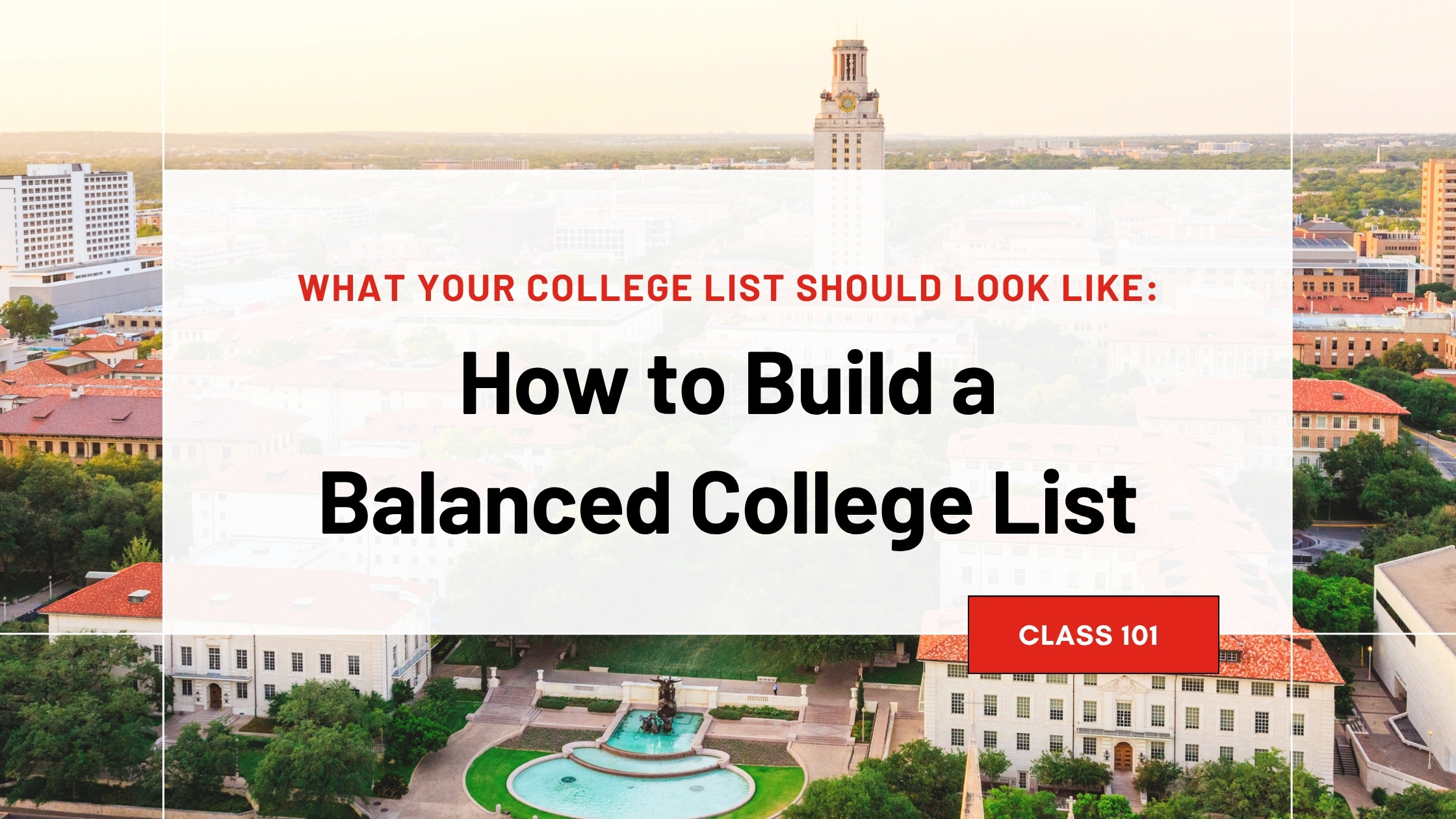December 13, 2023

Study hard and get good grades; it’s the advice everyone gets about what’s needed to get into college. While these sayings are common, they can be harder to realize. Students today face countless competing priorities that can make academic success difficult to achieve.
But it’s still not impossible to make high school work for you! With a few quick changes,you can increase your chances for success when it comes time to college admissions.
In this blog, we’ll run through a few tips that Class 101 students around the country have found helpful. With these tips, you can build the foundation you need to succeed.
While it would be nice to be good at something on the first try, the old saying that “practice makes perfect” is true. School takes work. No student is likely to succeed without devoting time and energy to academic success.
For these reasons, it’s essential to build a regular study routine.
There are many ways to approach studying. Many students find it helpful to set a regular routine—studying in the early morning or immediately after school—so they aren’t trying to cram information in at the last minute. Others may set up regular “study sessions” with their friends to keep each other accountable and ensure everyone studies for the material. Still others who find themselves easily distracted might embrace approaches like the Pomodoro technique, which builds in regular breaks between work sessions.
There are countless approaches to choose from, but the essential part is doing work regularly to build a habit. Your grades will not be saved in a single study session. They need constant attention.
Every student has different abilities and different things they are good at. Some students excel at math while struggling with writing and grammar. Others are fascinated by history but struggle to pay attention in physics or biology.
For classes that are a struggle, it can be helpful to meet with a tutor who can provide you with the specialized guidance and direction you need, who can work with you one-on-one to make the material interesting.
Many high schools have “peer tutors,” high-achieving students who volunteer to help lower-performing students understand the material. These tutors can be helpful because they are students themselves who come at the material in the same way as the student in need of help. Other high schools may have adult tutors on staff or teachers who can provide help after school, which can give you a professional perspective on an issue.
These people are available to help you succeed. You just need to ask.
If the tutor isn’t helping, students have another source of support: teachers themselves.
While it can be easy to forget at times, teachers are not your enemies. They are there to help you learn, to give you the skills you need to succeed. If you are regularly struggling with the material in a class, it might be a good idea to talk with a teacher after class. They might be able to provide help on the particular challenge you are struggling with or tips on ways to internalize the material. They could even recommend additional material or opportunities to help you improve your grade.
As with tutors, there’s no shame in asking for help. It’s essential that you take initiative for yourself, as there’s no guarantee people will know you are struggling until you speak up.
For high-achieving students, it can be tempting to take nothing but the most difficult classes with the hardest teachers and the most rigorous requirements. However, it’s important to ask yourself: Can you juggle all these obligations? Are you giving yourself the time you need to succeed in all your courses?
At the start of each term, think about what your priorities are and what you care about. From that basis, you can pick the classes that will let you pursue your interests and de-prioritize the classes that won’t help you achieve your goals.
Speaking of which, goals can be an incredibly important tool for studying.
Students can ensure they are meeting course requirements by setting micro-level goals for themselves. For a foreign-language class, that might mean memorizing ten terms a week. For a science class, that might be learning to apply a particular formula without guidance from an instructor.
They can also ensure they are working toward objectives by thinking in macro terms. What will be the end result of taking one course over another? Will taking a Spanish I class allow you to take and excel at a Spanish II class? Will it give you the skills you need to get the most out of a Global Issues elective course or better participate in a volunteer opportunity in your community?
These are the kinds of questions that can be important to think about at the start of the academic calendar or term. By thinking and planning ahead, students can ensure they will wind up where they want to be.
Finally, most students know that the skills that lend well to success with homework are different from the skills required for exams. During exams, students face time pressures. They may struggle with memorization or face anxiety that makes it hard to recall material.
Students face these issues in courses just as much as they do when taking the ACT and SAT.
Luckily, there are options. Students can take practice tests developed by their teachers or fellow students. They can put themselves in settings analogous to that of a classroom during a test to practice material.
Some Class 101 advisors might be able to provide specialized support themselves!
***
High school doesn’t have to be frightening for students. There are many different options that you can pursue to get the support you need to enjoy your time there and earn a good GPA. All you need to do is to speak up and seek out support.
One way to get support today is to reach out to a Class 101 advisor. As we’ve shown with this blog, we know the value of proper study techniques and academic planning! Learn how to raise your GPA through implementing our tested strategies this school year.
Contact us today by visiting the link here.

June 24, 2025
It’s around this time of year that many students and families start looking for the right college. This process tends to start with a college list, a collection of schools to apply to that match a student’s academic profile, interests, and the kind of experience they want to have. Having a well-rounded, strategic list of […]
Read More >
June 20, 2025
Every year, Class 101 awards scholarships to four high school students through the 101 Scholars program. Given to students of outstanding merit, it asks students to explain how they’ve used their skills and talents to change their community and the lessons they’ve learned from these experiences. This year, Class 101 is pleased to announce the […]
Read More >
May 22, 2025
One of the central parts of the college application process is the application essays. While grades and test scores give some hint at a student’s capabilities, the essay provides an opportunity for a student to present themselves on their terms. It can be used to show not only who they are but how they think […]
Read More >